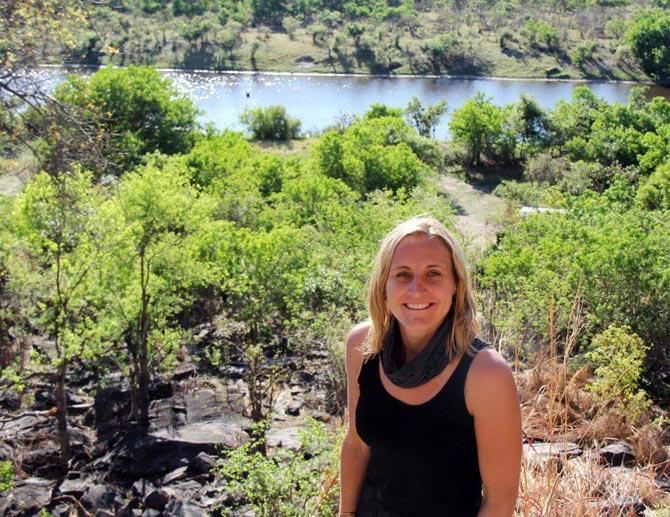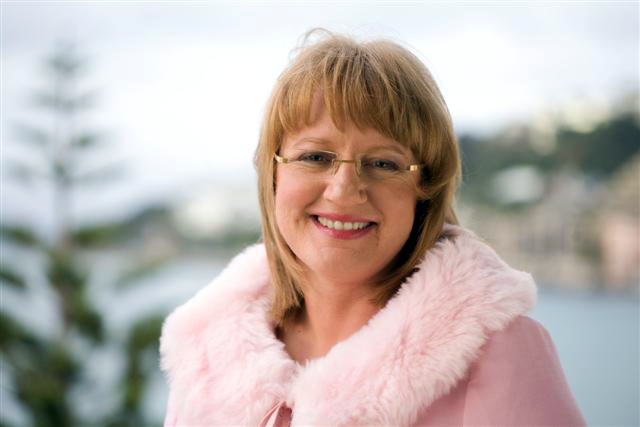
"I'd like to see more women at the top help other women climb the ranks," says Paula Parkes, Head of Marketing, Adobe Marketing Cloud, APAC.
Paula Parkes is the head of marketing in the Asia-Pacific region for Adobe Systems.
This was reason enough for me to be a little intimidated, on what I should be speaking with her about. But Paula came across as a very friendly person.
Hailing from New Zealand, her greeting was warm, as she thanked us for coming to see her.
I could even crack small talk with her on the iPad Mini she was carrying.
But, Paula is every bit the impression that her qualifications, experience and her current designation at Adobe will give you.
She's what you'd call a self-made woman -- hailing from a small town, working hard in academics, wading her way through competitive corporate environments and eventually earning herself a place in boardrooms of some of the world's largest corporations.
To me, Paula was a marketer who has lived and excelled through the massive transition that marketing has seen in the past 15 years, and I was looking to hear how marketing has changed through the ages. But what was more interesting, was her journey to the top as a woman.
Climbing the ladder as a woman
From the very beginning, Parkes laid a huge focus on her academics, qualifying herself in all the required skill sets.
She says, "I'm from New Zealand, and at the time, there were not a lot of women who were jumping into academia in the marketing and technology space, and ever since, I have been in the intersection of marketing and technology. My first job was at a UK-based healthcare firm, which had a huge market share and was sold to the NHS. Post this, I worked in an Australian company. I started working from a lower level, but worked my way to the top. By the time I left, I had a team of five people and had been responsible for an acquisition."
After her successful stints at relatively small companies, Parkes decided that it was time to move to the next level.
She joined SAS, where she went on to become its marketing head for APAC region.
She says, "Coming from a traditional marketing background, I knew that it wasn't going to be the same at SAS. We were in the business of high performance analytics. But I adapted well and had a great team under me."
But, through this journey, Parkes noticed a very worrying sign.
She says, "As I kept going higher up in the corporate ladder, I found fewer and fewer women. I'm a big fan of Sheryl Sandberg's 'Lean In' concept. It is exhilarating to know how women make it big despite the sacrifices and challenges, and at the same time, I'm angry at how we as humans are built and how that oppresses women."
As a woman, Parkes believes that women have some skills relevant to business that makes them generally better are certain things.
For example, she feels that women are naturally better multi-taskers, and have great negotiation skills. However, she also believes that women are their own worst enemies.
She says, "In the corporate industry, men help each other come up the ladder. Making that move in the business line for a woman requires a lot of sacrifices, and I'd like to see more women at the top help other women climb the ranks."

Please click NEXT to continue reading...

Marketing through the ages
When Parkes first started out as a marketer, it was still the time of fax mails, and the transition to e-mail had just begun. But despite all the changes, she believes that the fundamentals of marketing haven't changed a great deal.
"In fact, even today, 79 per cent content-driven marketing still uses e-mail as a primary channel. Now, there is this whole new social element and search engine ad money, which is a whole new world, that was never taught at b-school. But what's important is to think of the internet as another channel to provide value to your customers," she informs
However, the effects of these changes are slightly different.
She says, "The internet has empowered the consumer. Back in the day, marketing collateral used to highlight the functions of a product and it was very functional. Today, it's about about the business value that the product is delivering and whether it is delivering a proven ROI. And in the process, we are seeing an increase in the digital spend of companies. We have seen this last year and it will be interesting to see the trends of this year."
The biggest change that Paula sees is in how companies communicate.
She says, "Back in the day, corporates had the power and they controlled what information about them went out to the public. With the advent of the social age, that power is now with the consumers and the corporates are playing catch up. At Adobe, we're aware of it and we've launched the Adobe Marketing Cloud, so that businesses can understand and enhance the customer experience at every point."
From standalone software to cloud -- Adobe handling change
Adobe made a bold move with the launch of the Adobe Creative Cloud.
This meant that the company would move from the standalone software route, to becoming a cloud service.
This is a big change, especially given the size of the company, but Parkes believes that Adobe has coped up quite well.
She says, "Adobe is a great company. The best bit is that Adobe has the luxury of having a heritage of art, as well as that of cutting edge science. The company always knew that it wanted to move to the cloud and you can tell that by the kind of acquisitions that Adobe has done from 2009 to 2012."
"As far as the employees are concerned, they've really embraced the change. They have seen the company's story from art to science pan out before and the people are inspired with this new, bold move. Especially in India, it's really encouraging, given the innovation hub that it is."
As the APAC head for marketing, Parkes believes India to be a very unique market -- "As a part of Adobe's APAC operations, India is a strong priority. It is an innovation hub and they're very nimble with respect to change, and they pick up things really fast. But, in terms of internet spend, Australia and New Zealand are also a big focus for us."

Fighting the tall poppy syndrome
In New Zealand, there's a figure of speech, called the tall poppy syndrome, where it is said that that the tallest poppy flowers are the first to be cut down.
What people infer from this is to not shine a lot, especially as woman, as people would cut you down.
Parkes believes that this syndrome can be fought off.
"I think to excel at anything, you need to be firstly passionate about it, because it allows you to constantly push the boundaries. There should always be a thirst for knowledge and never be satisfied by achieving a bar. If you're a woman in corporate, you should vie for a spot in the boardroom. For a marketer, it only comes from work that has a proven ROI. And above all, you should really know yourself well. Every successful person knows herself really well. And as a result, you will have a voice for yourself."
She draws great inspiration from her fellow countrywoman Theresa Gattung, the former CEO of Telecom New Zealand.
"Setting up her business was never easy, but she always put her hand up and made her voice heard. She isn't doing that now. She's now helping start-ups in New Zealand with venture capital and expertise, that she has amassed over the years," says Parkes.
When asked if she would go back to New Zealand to do the same thing, Parkes says, "I don't have to go back to New Zealand to do good. I'm going to try and help as many talented people I come across. I want to help nurture as many sparks as possible and help them excel, be it in companies I work in or outside. That is really very rewarding for me and it's a big payback."